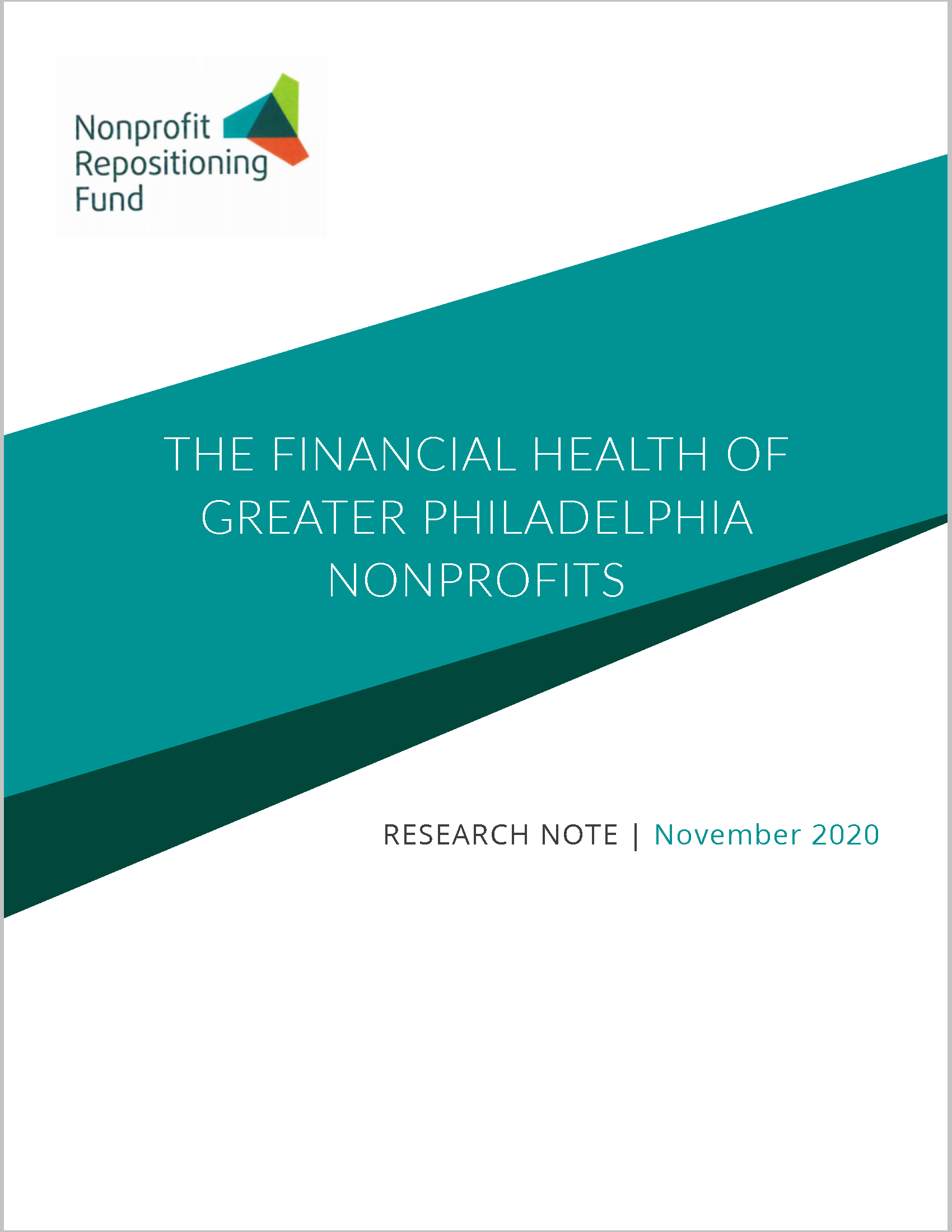 PHILADELPHIA — (Dec. 8, 2020) — The Nonprofit Repositioning Fund, in partnership with its members from HealthSpark Foundation, The Scattergood Foundation and the United Way of Greater Philadelphia and Southern New Jersey, released a new report today at Philanthropy Network Greater Philadelphia’s SPARX Conference that details the financial health and resiliency of the region’s nonprofits.
PHILADELPHIA — (Dec. 8, 2020) — The Nonprofit Repositioning Fund, in partnership with its members from HealthSpark Foundation, The Scattergood Foundation and the United Way of Greater Philadelphia and Southern New Jersey, released a new report today at Philanthropy Network Greater Philadelphia’s SPARX Conference that details the financial health and resiliency of the region’s nonprofits.
Comparing data between 2014 and 2018, the report highlights the financial risks and challenges nonprofits were facing before the monumental events of 2020. Today, the risks brought forward in the report’s data have been greatly exacerbated by the onset of the COVID-19 pandemic and the resulting economic recession.
“The Financial Health of Greater Philadelphia Nonprofits” is based upon an analysis of 2018 IRS 990 data conducted by BCT Consulting and contributions to the synthesis of the data provided by the Nonprofit Repositioning Fund Director Nadya Shmavonian. This new tool can support efforts of individual organizational leaders and boards to benchmark their financial performance within a comparable pool – a common for-profit industry practice. It also provides trend data, as it was designed to update a 2017 report supported by the Philadelphia Foundation – The Financial Health of Philadelphia-Area Nonprofits. These two reports provide the basis for continued analysis of the financial health of our region’s nonprofits – a sector comprised of over 14,000 organizations, many of which are struggling to survive.
The data and synthesis provide government, philanthropy, nonprofit executives and their board members with essential data, as they assess and prepare financial plans to help stabilize the nonprofit community that provides crucial services that advance the quality of life, health, safety, culture and education for all, as well as contribute to the economy’s recovery. The nonprofit sector comprises nearly 25 percent of the local economy and contributes significantly to the economic engine that national, state and regional governments and businesses are relying upon to recover from the severe economic impact COVID-19 has wrought upon the entire country.
When looking at the sector as a whole, the report shows some encouraging trends from 2014 to 2018, including:
- a 21 percent increase in total revenues (including a 31 percent increase in contributions)
- a 31 percent increase in net philanthropy
- a 33 percent growth in securities and investments
- a 35 percent increase in unrestricted net assets
- an almost doubling of months of operating reserves from 1.6 to 3 months
Still, other data emphasize concerning patterns that pre-dated the onset of 2020’s crises and that do not yet factor in present and future setbacks. Many of these organizations were able to quickly respond to COVID-19 but, according to the report, did not enter the year from an aggregate position of financial strength or stability. The data reveals the sector experienced an eight percent decrease in net income and a $62 million increase in combined deficit just within those four years.
“This report should be a wake-up call to all funders and nonprofits that business as usual was not so great for most organizations before 2020,” said Russell Johnson, President and CEO of the HealthSpark Foundation and Chair of the Nonprofit Repositioning Fund. “As we emerge from the pandemic, the way forward will not be to seek recovery to a way of working that was inadequate, but rather to make significant changes to the way we operate as a sector.”
The report also shows the aggregate share of nonprofits facing insolvency (with liabilities greater than assets) remained fixed from 2014 to 2018 at eight percent. Given the operational disruptions and economic fallout related to COVID, as well as reduced budgets at the state and local level, the region is likely to see an uptick in organizations facing the inevitability of insolvency. A report released in October 2020 by the Pittsburgh Foundation surveyed 808 Pennsylvania nonprofits in August 2020. Of those surveyed, 80 percent had experienced a loss in revenues, with 87 percent reporting a negative impact from COVID.
“It’s true that the state’s smallest nonprofits took the biggest financial hit, but even the largest organizations still saw losses of around seven percent,” said Nadya Shmavonian, Director of the Nonprofit Repositioning Fund. “It’s time for government, philanthropy and nonprofits to look at real strategies to address the structural challenges affecting our community’s ability to thrive.”
The report also sheds light on how crucial nonprofits will be to post-COVID economic recovery, calling on funders and the nonprofit community to change their practices so that social purpose can continue in communities. It goes on to make suggestions for nonprofits based on a SeaChange report, Tough Times Call for Tough Action, released in late March 2020, just as the magnitude of the pandemic’s challenges for nonprofits was heightening.
“At this stage, nonprofits must face inward and truly examine their missions, their operations and how a situation like COVID has impacted them. Thoughtful strategies to re-focus on mission and do whatever is possible to conserve cash will be crucial to organizations’ ability to weather this storm with resilience,” said Shmavonian.
# # #
Media contact: Sharon Gallagher, 215-209-3075,
sgallagher@sage-communications.com
